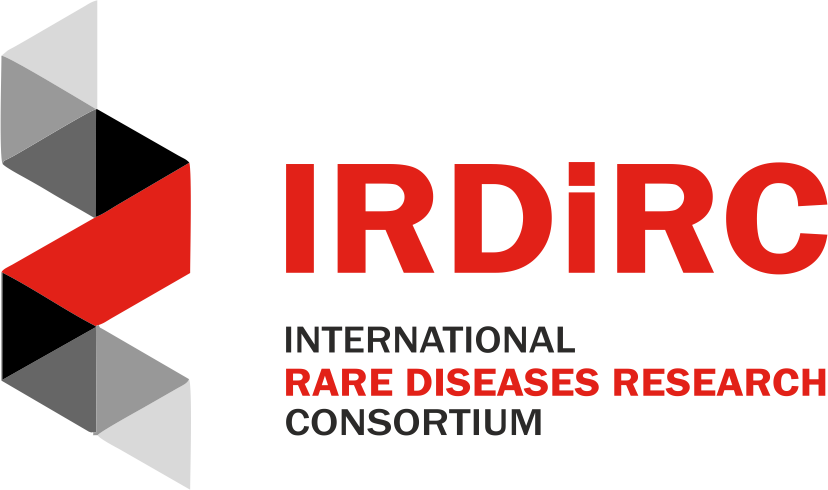
Introduction
The IRDiRC Task Forces are created to tackle specific topics within rare diseases research proposed by the Constituent and/or Scientific Committees and selected as prioritized actions by the Consortium Assembly and the Operating Committee.
Each Task Force reviews current barriers to efficient and effective rare disease research, and proposes solutions through policy recommendations and/or technical applications including platforms, tools, standards and guidelines.
Members of the Task Forces are nominated based on their expertise in the selected area and include key players of diverse backgrounds to ensure different perspectives are taken into consideration to drive innovation and new approaches.
The Task Forces may operate, on a time-limited mandate, either solely as IRDiRC initiatives or jointly with partner groups that wish to collaborate and address similar issues.
Objectives of the Task Forces
- Topics specific to rare diseases
- High leverage projects with strong translational potential and international scope
- Actions for international scope and relevance
- Projects that have not been covered by international initiatives
- Well targeted, actionable projects, with potential to produce results before 2027
- Clear objectives and timelines to improve participation and member motivation
- Coordination with other organizations to identify gaps and needs
- Alignment and harmonization of projects with other international initiatives
Enabling and Enhancing Telehealth for Rare Diseases Across the Globe
This Task Force aims to conduct a survey and systematic review of existing telehealth models, identify barriers and opportunities of its use, and develop best practices for introducing telehealth services into communities.
Primary Care
This Task Force aims to bring together representatives from different stakeholders required to identify the priority research areas, challenges, and opportunities in rare diseases research in primary care.
Integrating New Technologies for the Diagnosis of Rare Disease
This Task Force aims to identify new technologies in development or in experimental use that are likely to increase the diagnostic rate for rare disease patients, identify opportunities to enable its clinical adoption, and develop a clinical framework/guideline for implementing a combined diagnostic approach metabolomics/genomic/AI.
IRDiRC-RDI Global Access Working Group
Treatments are often unavailable for rare disease patients, especially in low-and-middle-income Countries. The goal of this Working Group, leaving no one behind, requires that access to treatments be available for rare disease patients.
Working Group on MedTech for Rare Diseases
This Working Group aims to create a better understanding and enhanced awareness of device developer’s needs, the standardized outcomes to define user needs for devices, and to offer a groundwork for developing solutions to improve the landscape of MedTech use for rare disease patients
Drug Repurposing Guidebook
The objective of the Drug Repurposing Guidebook is to help developers (of all kinds) navigate the rare disease landscape and identify specific tools and practices of relevance for repurposing projects. The creation of the Development Guidebook will focus on repurposing approaches, following the same successful methodology used for the Orphan Drug Development Guidebook, i.e. explore incentives, regulatory tools, initiatives, development tools (‘building blocks’) that exists or are missing for drug repurposing.
Shared Molecular Etiologies Underlying Multiple Rare Diseases
Expanding patient access to rare disease clinical trials by focusing on shared molecular etiologies underlying multiple rare diseases.
Sustainable Economic Models in Drug Repurposing
The main aim of the project is to identify key take-aways and potential recommendations to the rare diseases community regarding the suitability and key recurring elements on sustainable economic models for development and commercialization of orphan drugs.
Chrysalis Project
The goal of this project is to identify key criteria that would make rare diseases research more attractive to industry for research and development.
Rare Disease Treatment Access Working Group
Treatments are often unavailable for rare disease patients, especially in low-and-middle-income countries. This Working Group addresses the goal of leaving no one behind, requiring that access to treatments be available for rare disease patients.
Clinical Research Networks for Rare Diseases
Mapping and analysis of the existing ecosystem of national/supranational clinical research networks to develop policy recommendations on guiding principles for an international framework of collaboration of these networks.
Indigenous Population
Gathering the community to address barriers to the diagnosis of rare diseases for Indigenous peoples, so as to improve access to and utility of rare disease diagnostics in underserved populations.
Working Group on Goal 3
The IRDiRC Working Group on Goal 3 was established to identify what are the specific needs, metrics and tools for appropriate data collection and development of methodologies addressing the third goal of IRDiRC: Develop methodologies to assess the impact of diagnosis and therapies on rare disease patients.
Orphan Drug Development Guidebook
Creation of a simple guidebook for academic and industrial drug developers describing the available tools and initiatives specific for rare disease development and how to best use them.
Model Consent Clauses for Rare Disease Research
Gathering rare disease research policy experts to develop model consent clauses specific to rare diseases that are comprehensive, harmonized, readily-accessible, and internationally applicable, enabling the recruitment and consent of rare disease research participants around the world.
Solving the Unsolved
Identification of the genetic basis of rare conditions that are presently intractable to existing approaches based on exome sequencing requires development of innovative approaches for discovery.
Privacy-Preserving Record Linkage
The joint IRDiRC-GA4GH Task Force aims to develop a guiding policy for the generation of participant-specific identifiers that enable data from the same individual to be connected across multiple projects without directly revealing the participant’s identity.
Data Mining and Repurposing
This effort gathers expertise and identifies opportunities for collaborations to efficiently exploit data mining tools to identify new therapeutic targets and to repurpose drugs.
Small Population Clinical Trials
Collaborative effort on adaptive design, statistical methods and acceptability of new methods in small population clinical trials.
Patient-Centered Outcome Measures
The development and adoption of patient-centered outcome measures are instrumental in accelerating research and development in rare diseases.
Automatable Discovery and Access
In order to make the most of clinical data sources worldwide, accessing the level of patient consent towards data sharing and research participation becomes crucial.
Matchmaker Exchange
The joint IRDiRC-Global Alliance Matchmaker Exchange project aims at providing data sharing tools to match unsolved genome/exome sequence cases.
International Consortium of Human Phenotype Terminologies
The development and adoption of standards to be used to achieve interoperability between databases, in particular to allow the linking of phenotype and genotype databases for rare diseases.
Newborn Screening Initiative
More information coming soon
Preparing for genetic N-of-1 treatments of patients with ultra-rare mutations
The overall objective of this Task Force is to connect different N-of-1+ efforts to reduce duplication, achieve global consensus and create a roadmap towards development and implementation of N-of-1+ treatment.
A framework to assess impacts associated with diagnosis, treatment, support, and community integration that can capture changes along the rare disease patient and family journey
The overall objective of this Task Force is to develop, operationalize, and test a comprehensive framework of holistic, multidimensional, and evolving life-long experiences of patients and families living with a rare disease.
Funding Models to Support the Spectrum of Rare Disease Research and Development
The overall objective of this Task Force is to identify how different types of funders make decisions about when to fund at a given stage in a treatment’s development and the factors that contribute to this process.
Functional Analysis
The overall objective of this Task Force is to create a framework for the robust and effective ecosystem of functional analyses in rare diseases.
PLUTO PROJECT – Disregarded Rare Diseases
This Task Force aims at using an integrated database search approach to identify and classify the groups of rare diseases that are currently under-represented by academic research and industrial development alike, determine what characteristics they have in common, and – through this analysis – to understand what are the roadblocks that are preventing the chances of seeing effective treatments being developed in the near future.
Machine readable consent and use conditions
The main objective of this Task Force is to explore and understand the current range of needs, activities and gaps around data tools and standards for digital management of consent and use conditions.

